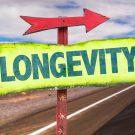The Unbelievable Effects of Developing Resilience
So far, 2018 has dealt me with one punch in the gut after another. It began with the end of my relationship with my boyfriend who I was crazy about. It has been full of problems with housemates, stress from a law from the EU that could destroy my business, friendships falling apart, stress from more work that I could handle, loneliness, and despair about having to move out of my beloved home.
I was feeling beaten up, run down, hopeless and quite depressed. I was feeling like a victim to life. In the midst of all this happening, I developed a giant and painful cyst on my back that needed regular attending to, but was extremely hard to reach. The recommendations from my naturopath were helping, but the progress was far too slow, and I was having to consider surgical removal.
In trying to address the cyst, I discovered the metaphysical underpinnings. The questions I got were, “What will it take to stop feeling sorry for myself? And “What will it take to accept my life as a learning experience and look forward with hope?”
“Wow! “ I thought.. “how timely!”
In pondering these questions, I realized that I need to do a better job of bouncing back! I needed to release barriers to building resilience.
Read MoreA Simple Answer to Memory Loss
My elderly client came to me deeply concerned about her short term memory loss. She would find that in casual conversations, she would forget important things that she was told just 2 minutes ago. While planning simple trips (like going to the doctor), she would find that she had to keep making her plans over and over because she had forgotten what she originally had planned to do. She was also struggling with spelling words that had never given her trouble before, like “guilt”. She would frequently have these “can’t think” moments. She was worried that these could be signs of dementia.
Luckily, we discovered
Read MoreShould you exercise to prevent or reverse dementia?
Should we exercise to prevent dementia?
The answer to the latest meta analysis is showing that the data is inconclusive!
Does that mean we shouldn’t bother to exercise? No! There are a lot benefits to exercise.
What are the benefits of exercise to the brain?
Read MoreRecovery from a Head Injury
My client is an accomplished author and public speaker. One day, as she was walking along, she fell and hit her head on the concrete. As a result, she felt a lot more fatigue and would need to nap regularly. Her most troubling symptom was with her typing. After the fall, she was constantly making spelling errors and adding extra spaces to just about every word. She was getting frustrated about all the errors she was making.
Would she be able to have a recovery from a head injury?
The doctors told her it would take 3 months to recover from her’s. But she didn’t have the option of taking 3 months off of work. Her income depended on her ability to be healthy.
What happened when we released barriers for a faster recovery?
Read MoreThe Most Important Secret to Healthy Aging
It is not how old you are but how you are old.
As a Neuroscientist and Epidemiologist I spent over a decade researching the underlying causes of Alzheimer’s disease. But after working with thousands of clients, I now realize that the one single and most important thing you need to prevent aging and cognitive decline isn’t about your habits, your education or your exposures. It is your willingness to release your negative beliefs about aging.
When I talk to the elderly about how Alzheimer’s is reversible, and how there are so many things you can do to keep your brain young, I regularly hear, “Oh…I’m too old for that”. Do you notice the problem with this belief? I do. It indicates to me that the person is saying that they are no longer worth the effort. And that distresses me terribly because I know that this is precisely how they will become old, by giving up.
But what happens if you don’t believe you have to get old?
Read MoreDeveloping the Ability to Remember Names
I used to struggle to remember names. I’d have to ask people to repeat their names often, and would often give up to avoid the shame of not remembering. After releasing subconscious barriers that got in the way of my ability to remember names, I led a Meetup hike. There were 10 new people present. After introducing ourselves, I went around the circle
Read More








